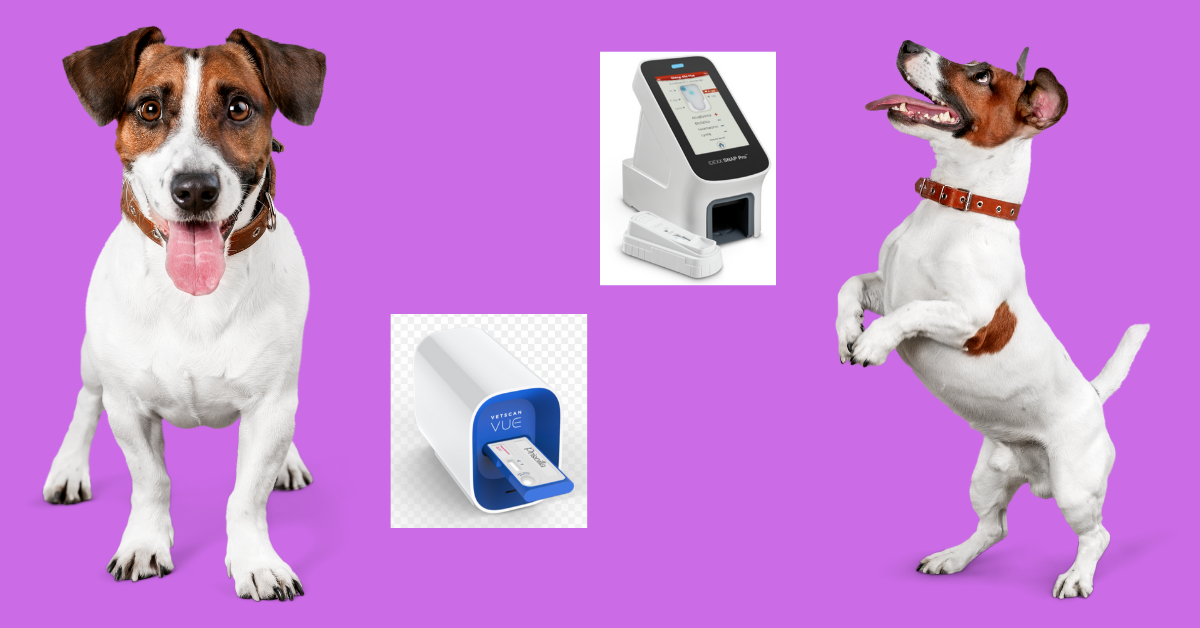In-House Heartworm Tests: A Comparison Veterinary Guide
The American Heartworm Society (AHS) recommends annual testing for heartworm disease in canine patients. While heartworm testing in cats can be trickier than in dogs, the AHS also recommends testing cats before starting them on heartworm prevention, to establish a baseline for each patient.
Heartworm disease can be a risk in just about any state in the US. Even in states that see less mosquito activity or have not been well-known for heartworm risk, there is still some possibility of exposure as more and more dogs from heartworm-prevalent areas travel with their owners, potentially exposing the local mosquito populations.
Should Heartworm Testing Be Done In-House?
As with many diagnostic tests, a veterinarian has the option of performing the test in their practice or sending a blood sample to an outside lab for analysis—or a combination of both.
For example, sending blood to an outside lab might make sense for healthy patients who are having a wellness bloodwork panel performed at their routine checkup.
Many standard bloodwork panels include a heartworm test, so it may make sense—financially for the client, and to save time for the veterinary team—to do the heartworm test at the lab since the blood sample is already being sent out.
However, prices and bloodwork panel options vary depending on the company and contracts/deals obtained, so be sure to compare the prices at your own clinic.
On the other hand, sometimes it makes sense to do a heartworm test in-house. For example, maybe a patient is symptomatic, and the veterinarian and pet owner both want an answer right away.
Or, maybe the client can only do basic care—vaccines and a heartworm test before starting heartworm prevention. For that client, it may make sense to do an in-house test so they can receive the results right away and know they can safely begin their dog’s prevention.
Here are some of the in-house heartworm tests available to veterinarians…
IDEXX SNAP Heartworm RT Test
IDEXX claims their test provides reference laboratory quality technology, for accurate results even with a low heartworm burden.
Their improved test sensitivity comes from a technology called “bidirectional flow,” which gives the sample two chances to bind to antibodies during the test, and from amplification. And specificity comes from a wash step that helps remove debris from the result window.
Abaxis VetScan and Zoetis Witness Heartworm Rapid Tests
Abaxis (now a part of Zoetis) offers a very simple-to-use test. It requires just one drop of blood and two drops of buffer, with no need to physically snap the test.
The company advertises that their product has a 12-month shelf life and does NOT need to be refrigerated. It also has a spot to write the patient’s name, to ensure there’s no mix-up of results if performing many tests in a short time frame.
Because of the non-refrigerated storage and the ease of writing a patient’s name on the test, this rapid test might be a good option for mobile or high-volume practices.
The Zoetis Witness test is very similar to the VetScan, and Zoetis sells each one in different quantities. For practices that mostly send their samples out to a lab, it may make sense to order the Witness test, which is available to be ordered in smaller quantities, so the tests don’t expire before a veterinary practice uses all of them.
Heska Solo Step Heartworm Test
The Heska test is also supposed to be simple to use, requiring 3 drops of blood and no need to snap the test. One advantage that Heska advertises is free confirmatory testing at their lab for positive results on the in-house test. This test can also conveniently be stored at room temperature.
There are separate versions of the test available for canines and felines, with the feline test evaluating for heartworm antibody rather than antigen.
A Few More Considerations
In-house tests are great options for screening for canine patients. However, any positive in-house test should be followed up with additional testing. This would usually involve confirming the positive test at an outside lab, and doing microfilaria testing. It’s important to have this additional confirmation and information prior to beginning any treatment.
Testing for cats is more complicated, too
Since heartworm-positive cats are more likely than dogs to be negative on an antigen test, an antibody test is the test of choice for them. However, antibody testing must be taken into account with the clinical picture and additional testing, since it documents exposure and is therefore not necessarily indicative of a current infestation.
Details and specifics of these tests may evolve over time. It’s important to check directly with the company for the most up-to-date information before making a purchase.
And finally, consider additional factors such as whether a special deal is available on these rapid in-house tests if you are already purchasing other equipment (like a hematology or chem analyzer, for example) from the same company. It may make financial sense to stick with the same brand. Be sure to check for any stipulations (like a minimum number of tests per month) in the contract, though. Also consider if it would make sense for your practice to do a combination test—which often features testing for Lyme, Anaplasma, and Ehrlichia in addition to heartworm—based on the risk in your local area.
With all these factors in mind, the best test for each individual practice varies, depending on their unique needs. Doing research, and asking for opinions from colleagues who have used the tests, can help with making this important decision.
Written by: Dr. Tammy Powell, DVM



